#Chyi
Text


#ちょびっツ#アニメ#かわいい#甘い#ちぃ#Chi#Chyi#Chii#フライヤ#Freya#Furaiya#animecore#otakucore#anime#kawaii#webcore#kawaiicore#neetcore#00s#2000s#2000s core#chobits#old web#internetcore#softcore#early 2000s#png#gif
2K notes
·
View notes
Text

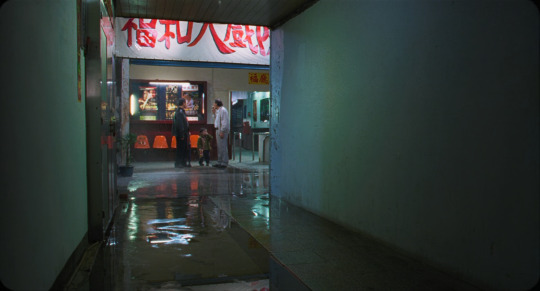




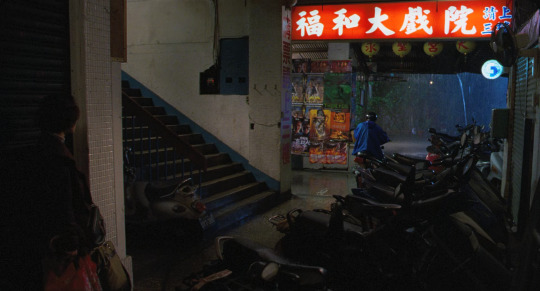
Goodbye, Dragon Inn (2003), dir. Tsai Ming-liang
#goodbye dragon inn#tsai ming liang#lee kang sheng#chen shiang-chyi#film#film stills#filmedit#movies#movie stills#cinema#cinephile#my posts
257 notes
·
View notes
Photo
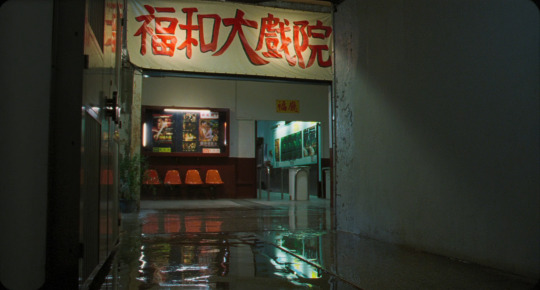
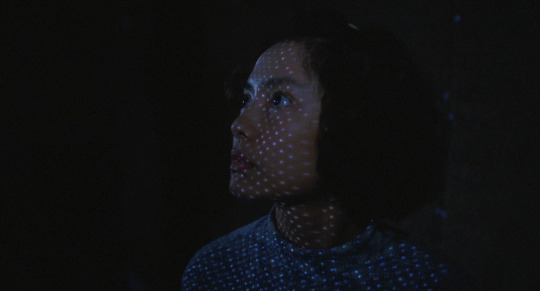
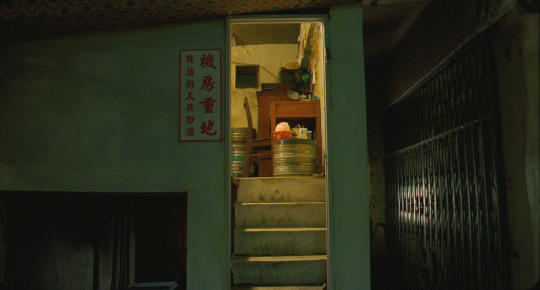
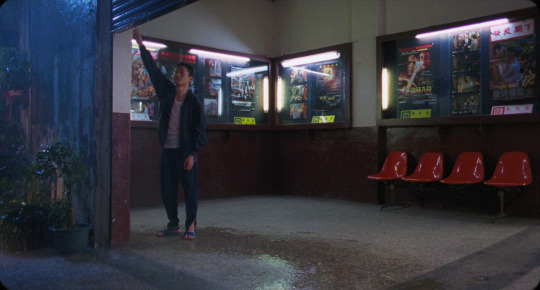

goodbye, dragon inn (2003)
#goodbye dragon inn#film#movie#cinema#art#edit#taiwan#asia#indie#tsai ming-liang#lee kang-sheng#chen shiang-chyi#queue
229 notes
·
View notes
Text


@bitteraerie + @goldenspecks um. hi (blows us all up)
#running circles around you guys. btw. if you care#myart#some of my other styles that i’ve been using a lot recently#especially lineless. oh my god i love you lineless so shape so easy to draw#ne and my wife lineless art style#anyway hi eerie and chyi. don’t look at the tags. but i’ve always thought your art is really cool and inspiring#okay? pillars of the community. to me (disappears into the fog)
117 notes
·
View notes
Text
Xiao Shunyao's studio released bts of the singing bit from the Shui Long Yin CNY promo video.
And here is the original song: 狼 Wolf by 齐秦 Chyi Chin - with lyrics (thanks @the-wintry-mizzenmast )
14 notes
·
View notes
Note

Both a pearl and a crudely painted pink cinder block are hurled at you at high speeds by a mysterious white creature that managed the sneak into your chamber. The pearl reads: "Virtous Bliss! it is so very good to see you! :) i have a very special gift for you, one i've been keeping for ages, just for this one special occasion! Fantastic and breathtaking, never seen before, a miracle right at my doorstep! You promise to take good care of it alright? ... Oh and, excuse the delivery methods for it will you? they will most likely be a little bit... violent ;) - Ever Burning Flame"




I've heard so much about you! Did you know how popular you are little beast!? It is a treasure to have you visit me ! Let's see, what do you have for me?

So it's a gift! And here I thought you were pelting me with rocks for no reason. It reminds me of a certain someone, I wonder if you've met him? Unfortunately I can't give you back this pearl, I'd like to add it to my collection! I'm sure you can find another way to show Ever Burning Flame my excitement! Although I could contact them through the Communications Array, that's no fun is it?
#answered#bliss#interactions#babys first really long post and also im embarrassed about writing that caption HAHA#CHYI I LOVE YOU SOOO BAD THANK U FOR THIS :sob:#i love you flame i love you white boy i love you my pink pebble gift. i love you flame pearl#huge shoutout to eerie for letting me reference its white boy art / pose so i could actually draw that weird animal#i would be dead in the dirt without it honest to god#Trying to get in the groove of things still ignnore me being shy okay ill be normal soon
51 notes
·
View notes
Text

A Confucian Confusion (1994) dir. Edward Yang
16 notes
·
View notes
Text
The Past and Present Life of Taiwan's Banned Songs by Ma Shifang
youtube
This is an English translation of the first episode of Ma Shifang's radio program "Heard," about Chyi Yu's "The Olive Tree."
The song “The Olive Tree” (橄榄树) was recorded in 1979 as the title track of Chyi Yu’s (齐豫) first solo album. This song is possibly one of the most widespread and popular songs in the history of classical Chinese music. The song’s lyricist was the writer San Mao (三毛), the composer was musician Li Tai-Hsiang (李泰祥), and it was performed by singer Chyi Yu.
This album from 1979 set an almost insurmountable model for Taiwan’s youth songwriters at the time. The version of the song we’re hearing is in the state most people heard it in for the first time. But, the song itself had endured eight to nine years of twists and turns that held it back from being recorded. Along the way, there were many points where it could have ceased to exist. Or at least, the song wouldn’t have ended up growing into what we now know it to be.
What’s going on here? Today, we’re going to talk about the story of the song “The Olive Tree.”
Don’t ask from where I have come / 不要問我從哪裡來
My home is far, far away / 我的故鄉在遠方
Why do I wander so far? / 為甚麼流浪
In distant lands, I wander on / 流浪遠方 流浪
For the birds that soar in the sky / 為了天空飛翔的小鳥
For the brooks that flow in the mountains / 為了山間輕流的小溪
For a meadow green and wide / 為了寬闊的草原
In distant lands, I wander on / 流浪遠方 流浪
The song “The Olive Tree” was first put on a record in 1979, but it was created much earlier than that — it was written around 1970-1971. At the time, the composer Li Tai-Hsiang was around 29-30 years old. In the early 1970s, he wished to combine modern poetry with original music, which would hopefully allow a wider audience to recognize literature while entering the halls of classical music.
After he met San Mao in 1970, he invited her to try her hand at writing lyrics which he would compose music to. And so, in the early 1970s, San Mao and Li Tai-Hsiang collaborated and wrote several songs that would later become popular, including “Didn’t Say Goodbye” (不曾告別), “A Daylight Avenue” (一條日光大道), and the song we’re introducing today, “The Olive Tree”.
The lyrics say, “Don’t ask from where I have come, My home is far, far away. Why do I wander so far? In distant lands, I wander on.” The word “wander” seems to be overused nowadays— any young artist will say “I’m going to wander.” But to young ears in late 1970s Taiwan, the word “wander” contained a landscape, expectations, and dreams that were completely different.
What happened in 1979?
On January 1, 1979, the United States formally established diplomatic relations with the People’s Republic of China. At the end of the year, Taiwan caused a national stir with the Kaohsiung Incident (美麗島事件). It was a time of change.
There was one other thing this year. At the time, people probably didn’t feel that strongly about it, but it’s interesting when looking back. In 1979, Taiwan finally opened its doors to the general public and allowed them to apply for tourist visas. Before this, it was extremely difficult to travel abroad — we keep on talking about wandering, but where can we wander to?
For most Taiwanese at the time, the furthest you could go was Penghu (a collection of islands 50 km west of Taiwan). Anything further than that was impossible.
So hearing a song about an olive tree, from faraway Spain, that’s Mencius’ landscape.
For the birds that soar in the sky
For the brooks that flow in the mountains
For a meadow green and wide
In distant lands, I wander on
When San Mao first handed “The Olive Tree” lyrics to Li Tai-Hsiang, he was a little dumbfounded.
Why? Take a guess.
When he first encountered San Mao’s “The Olive Tree”, there was a discrepancy between what he had imagined and what she turned in. He was at a loss, because San Mao emphasized that this song was her dream and described an episode in Spain.
Back then, the lyrics of the second verse that San Mao wrote were:
For the birds that soar in the sky
For the small donkey
For the Spanish girls
For the Spaniard’s big eyes
What you don’t know is that San Mao had just returned from Spain at the time. When she came back, she read a prose poem published in 1917, called Platero and I, by Nobel-prize winning author Juan Ramón Jiménez (Platero is the name of the eponymous donkey). He received the Nobel Prize in 1956, so Platero and I was translated to Chinese that year.
San Mao read and liked it so much that she was inspired by the book to write the song “The Olive Tree”. What she really wanted to talk about was the little donkey!
But no matter how hard Li Tai-Hsiang thought about it, he found it very hard to put “donkey” to the melody. He later cobbled together a melody to his best effort, but he wasn’t very satisfied with his work.
In 1973, Li Tai-Hsiang planned to spend a whole year learning about modern music at the Music Experimental Center at San Diego State University. In order to finance his travel, Li Tai-Hsiang wanted to take a few songs he wrote with San Mao, as well as some of his work in the popular music scene, and sell them off to record companies.
It wasn’t until 1974, when Li Tai-Hsiang came back to Taiwan, that he heard the songs he sold on the radio, arranged in a way that wasn’t quite what he had in mind when he wrote them.
But he didn’t hear the song “The Olive Tree,” probably because the record company didn’t really know what to do with it either.
When Li Tai-Hsiang came back, his mood was a little different. He felt like after going to the US, he had been exposed to more things and had a wider range of contacts. He learned how to use rhythm to express his feelings and aspired to live a life of freedom.
At this time, he met another young girl with a passion for music, called Yang Tzu-Chun (杨祖珺). Yang Tzu-Chun was an important songwriter in Taiwan’s campus folk music movement, and popularized the song The Beautiful Island (美麗島). He got to know her, and often went to visit her to talk about music and life.
Yang Tzu-Chun also felt like the lyrics in the middle of Olive Tree, about the Spanish girls and donkeys and such, were a little strange. So, she changed the lyrics to this:
For the birds that soar in the sky
For the brooks that flow in the mountains
For a meadow green and wide
In distant lands, I wander on
With this small change, she expanded the scene of the song beyond Spain, and opened up more possibilities for the symbolism of the olive tree — it became a destination from a dream.
Don’t ask from where I have come
My home is far, far away
I interviewed Yang Tzu-Chun many years later, and she said she felt sorry to San Mao. She was young and ignorant at the time and didn’t think to find the original lyricist. At that time and environment, it wouldn’t have been easy to find her.
It was probably many years later that San Mao heard the version sung by Chyi Yu and noticed that the lyrics in the middle had changed. Her initial reaction was not very pleased, and she said something like this: If the purpose for your wandering is just to see the birds flying in the sky and the vast meadows, then you don’t have to go wandering. But this song never got the chance to be turned into a record.
It wasn’t until 1978 that Li Tai-Hsiang met Chyi Yu at an academic competition. He took the initiative to make an offer to Chyi Yu, where he said he’d help her produce a complete album.
The resources of this Li Tai-Hsiang and the Li Tai-Hsiang of the past were of a completely different condition. He was already able to conduct the entire philharmonic orchestra and make music he liked, in the way he liked to.
Chyi Yu’s first solo album “The Olive Tree” was released in 1979. On the cover of this album, we can see, on top of the big title, “Composed, arranged, and conducted by Li Tai-Hsiang” and “Vocals by The Golden Eagle Award-winning singer Chyi Yu.”
These days, it’s rare to find albums that can claim “composed, arranged, and conducted” all by one person. What skill!
Several songs on this album were songs used in movies and interludes, including “Walking in the Rain” (走在雨中). For movies of this era, choosing a theme song, using it, and releasing it on a record should be a smooth process. It’s supposed to be a big seller in the theater, then on the radio and TV — it should be a big hit across the board. But the song ran into a new obstacle.
The song didn’t pass the examinations of Taiwan’s Radio and Television Administration.
Why? What part of the song “The Olive Tree” is questionable enough for it to not pass?
Turns out the first verse, “Don’t ask from where I have come, My home is far, far away. Why do I wander so far? In distant lands, I wander on,” to the ears of the censorship board of that year, was suspicious. It could be an allusion to the time the Kuomintang party was defeated in the civil war and as a result, had to retreat to the small island of Taiwan and wander far away.
This line of thinking is truly amazing. But back in the day, Taiwanese creators really had no choice — they just had to deal with constraints of censorship caused by the imagination of the administration.
Now what do we do? The movie ("Your Smiling Face"/歡顏) had already wrapped up, all the post-production was done, all the footage was done. The very first scene of the movie is the lead actress, Sibelle Hu (胡慧中) singing “The Olive Tree” to the camera.
But the song did not pass the examination. Then, what’s to be done? We can’t cut this scene, it’s important!
In the end, they had to ask Chyi Yu to come back to the studio and sing again, and change “in distant lands, I wander on,” to “wandering, wandering.”
How come she can sing “my home is far, far away,” but can’t sing “in distant lands, I wander on”? We don’t really know either. At that time, the censors probably had a way of thinking that we don’t understand.(*According to this article, “The administration at the time feared that lyrics about a “faraway hometown” would provoke sensitive cross-strait relations, and that lyrics romanticizing roving would encourage teenagers to run away from home").
Later, while watching the movie, you can see that the lip-syncing is still to the lyrics of “in distant lands, I wander on,” while we hear “wandering, wandering.”
The song was forbidden from airing on the television and radio, but that didn’t stop it from circulating — on the radio’s Song of the Year poll, “The Olive Tree” ranked in the top ten of the year’s favorites.
Additionally, although it was banned in Taiwan for a few years, I don’t think there’s a single person in the Chinese-speaking world who doesn’t know this song.
But looking back at that time, when radio stations couldn’t broadcast the song — what could be done? The year after Chyi Yu released “The Olive Tree,” 1980, there was another young female singer who released her first solo album as well. Her name was Sally Yeh (葉蒨文).
Sally Yeh was only 18 years old back then. In 1980, she released her first solo album, arranged and produced by Li Tai-Hsiang, called “Embossing Spring” (春天的浮雕). There’s a song on this album that’s in English. The song is titled “The Olive Tree.”
Sally Yeh adapted “The Olive Tree” to English. DJs that couldn’t broadcast Chyi Yu’s version played Sally Yeh’s version instead, as a roundabout way of protesting the censorship.
Don't ask from where I have come
My home is far, far away
Why do you wander so far
Wander so far, wander so far?
Sally Yeh certainly had a good voice, but her singing style was very different from Chyi Yu. Chyi Yu once recalled the first time she was at Li Tai-Hsiang’s house listening to him play the piano and sing “The Olive Tree.” She was blown away on the spot, thinking “How could there be such a nice song?”
Then she tried to sing the song. In the beginning, Chyi Yu sang in a style that was more like an American folk singer, closer to what we heard from Sally Yeh. But when it came time to officially go into the recording studio, Chyi Yu said Li Tai-Hsiang was bursting with ideas, constantly asking her to sing the song in different ways and trying to push her to her full potential.
Chyi Yu said that he was basically just treating her like an instrument to test out. Indeed, the final results made Chyi Yu’s “The Olive Tree” neither an art song nor a pop song. It’s neither folk, and it’s certainly not rock. It’s just a beautiful sound that we haven’t heard before.
Chyi Yu has sung “The Olive Tree” for more than 30 years, and she has often done it acapella. Even when you take away all the accompaniment, the olive tree in this dream is still beautiful.
Also, also / 還有還有
For that olive tree in my dreams / 為了夢中的橄欖樹
Don't ask from where I have come / 不要問我從哪裡來
My home is far, far away / 我的故鄉在遠方
Why do I wander so far? / 為甚麼流浪
Why do I wander so far away? /為甚麼流浪遠方
Even though it has already been so many years since “The Olive Tree” was released, when we listen to it now, we don’t feel like the sound is outdated, but rather it is a voice that transcends the times. Such an arrangement, such a melody, such musical elements, such a way of singing.
Chyi Yu has told me that she has sung this song thousands of times, but she still gets nervous every time before she gets on stage. From the first note of the opening, to the last note of the last line of the song, she can’t relax, and if she does, she’s done for.
So it’s not an easy song to sing, but it is a truly pretty song.
Looking back toward 1979, this song helped many young musicians see heights they could not have imagined before. Many young singers and songwriters at the time couldn’t even read sheet music, they self-taught themselves the guitar, and the process of writing songs was just humming and singing, humming and singing.
As long as it was nice to hear and easy to sing, it could be sung.
If it weren’t for people like Li Tai-Hsiang, who wanted to specialize in classical music, a person who came from the academy, who had the courage to break the mold of music’s potential and the barriers between the genres of music, those young musicians probably didn’t know that music could be made to look like this.
We often use the words “to have broad appeal,” but how difficult it is to really achieve the realm of broad popularity. But Li Tai-Hsiang really did it. He did it with Chyi Yu, and they’ve inspired a whole generation of young people.
They hear such a song and tell themselves that they can’t compete with such heights, but at least we can try. We should try again.
It’s no exaggeration to say that Li Tai-Hsiang and Chyi Yu inspired a whole generation with the 1979 release of “The Olive Tree,” and with it, they’ve created a courageous piece of Taiwanese music history.
#good morning its 4am would you be interested in some taiwanese music history?????????#jay rambles#taiwan#chineseblr#chinese music#song recs#chyi yu#san mao#li tai hsiang
5 notes
·
View notes
Text
Lmao I needed to see that video — this shit so telling 💀 if y’all wasn’t seeing it before, I hope y’all see the shit now.
BODY LANGUAGE IS YOUR BIGGEST OPP!!!
Remember that!

6 notes
·
View notes
Text

#ちょびっツ#アニメ#かわいい#甘い#ちぃ#Chi#Chyi#Chii#フライヤ#Freya#Furaiya#animecore#otakucore#anime#kawaii#webcore#kawaiicore#neetcore#00s#2000s#2000s core#chobits#old web#internetcore#softcore#early 2000s#darkcore#emocore#2000s emo
676 notes
·
View notes
Text
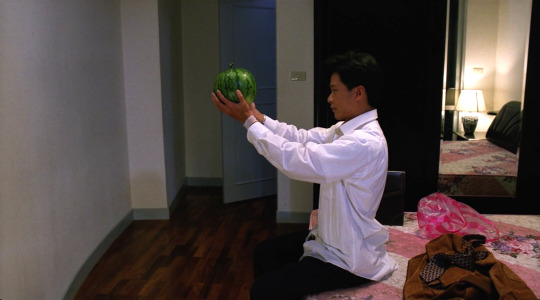

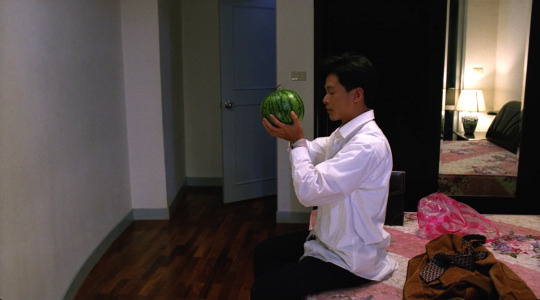



Vive L'Amour (1994), dir. Tsai Ming-Liang / The Wayward Cloud (2005), dir. Tsai Ming-liang
#vive l'amour#the wayward cloud#tsai ming-liang#lee kang-sheng#chen chiang-chyi#film#film stills#filmedit#movies#movie stills#cinema#cinephile#parallels#my posts
100 notes
·
View notes
Photo
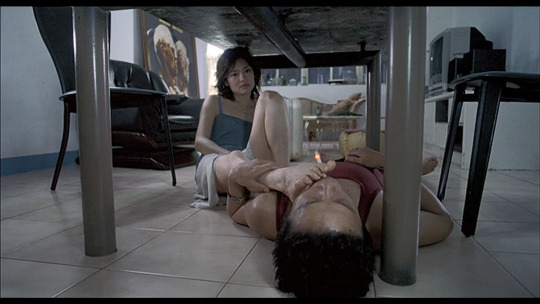
the wayward cloud, 2005
18 notes
·
View notes
Text

I DON’T WANT TO SLEEP ALONE
[Tsai Ming-liang 2006]
#poster#i don't want to sleep alone#Hei yanquan#malaysian film#asian cinema#movies#taiwanese film#great directors#great cinematography#norman atun#lee kang sheng#Chen Shiang-chyi#黑眼圈#tsai ming liang#movie poster
9 notes
·
View notes
Photo
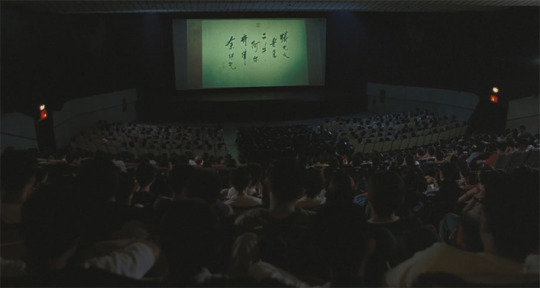

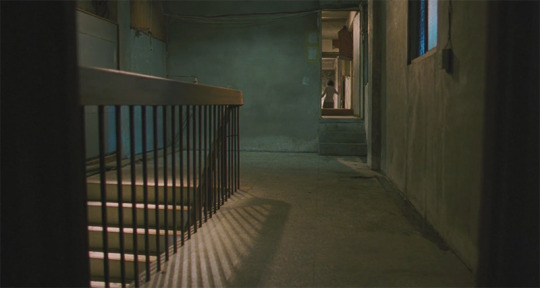

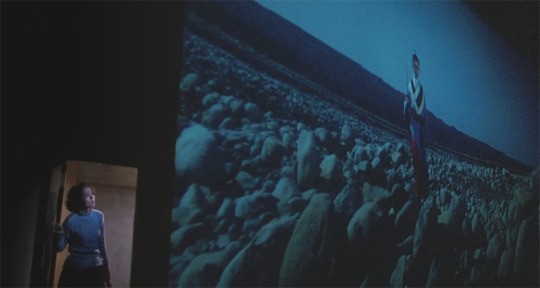
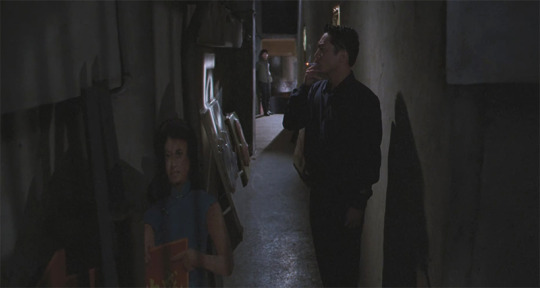
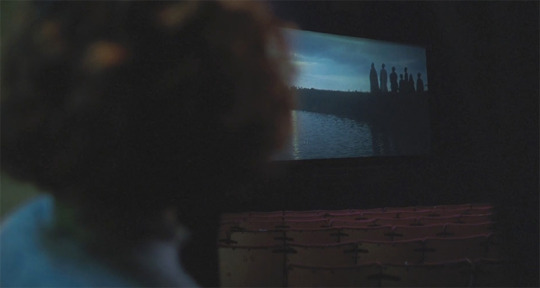

BU SAN (Tsai Ming-liang, 2003)
#bu san#goodbye dragon inn#good bye dragon inn#tsai ming-liang#lee kang-sheng#chen shiang-chyi#kiyonobu mitamura#yang kuei-mei#jerry chan#miao tian#chun shih#lee yi-cheng#film#cine
29 notes
·
View notes
Photo

New York Film Festival 2022:
A Confucian Confusion (Edward Yang), 1994
#films#movies#stills#A Confucian Confusion#Edward Yang#Chen Shiang-chyi#Ni Shujun#NYFF60#New York Film Festival#1990s#Taiwanese#seen in 2022
4 notes
·
View notes
Text




Chen Shiang-chyi in THE WAYWARD CLOUD (天邊一朵雲) | Dir. Tsai Ming-liang, 2005
1 note
·
View note